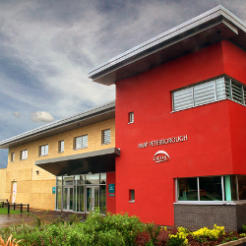The inaugural social impact bond currently being piloted at HMP Peterborough is already showing early signs of success, according to those involved in its delivery.
The newly-released short-sentence prisoners that are the target of the One Service – the programme funded by the social impact bond (SIB) – already appear to be responding positively to the interventions provided, said Janette Powell, the director of the service.
With the social impact bond (SIB) now one year into its six-year lifespan, the various organisations that are charged with providing aspects of the One Service held a media briefing to report on the learnings gleaned so far.
The programme aims to reduce the number of reconvictions among 3,000 short-sentence prisoners by 7.5 per cent over the period of the bond. Investors will receive a return if the number of reconvictions falls by at least 7.5 per cent overall.
If the Social Impact Bond delivers a drop in reoffending beyond 7.5 per cent, investors will receive an increasing return capped at a maximum of 13 per cent per year over an eight-year period. But if the 7.5 per cent target is not reached, the investors will get nothing back.
The One Service comprises a variety of interventions both pre- and post release, provided by organisations including the St Giles Trust, Ormiston Children and Families Trust, SOVA and YMCA. It is the only programme anywhere in the country that offers support to short-sentence prisoners after they are released from jail.
Powell said that although it was too early to extract any hard facts about the success of the programme, “our sense on the ground is that it is having an impact”.
“Clients tell us, ‘if it wasn’t for you we would be back inside again’,” she said. “And police and prison staff say they know when someone is engaging with the service because they haven’t seen them for a while.”
Rob Owen, CEO of St Giles Trust, said the programme was the ‘holy grail’ because it not only cuts the number of victims of crime, it also gives ex-prisoners a “fighting chance of changing their behaviour”.
And because the programme is accountable for every one of the 3,000 prisoners that leave HMP Peterborough during the period of the bond, there is every incentive to help those clients with the most complex needs, instead of being skewed towards helping those clients that might be deemed easiest to help, he said.









